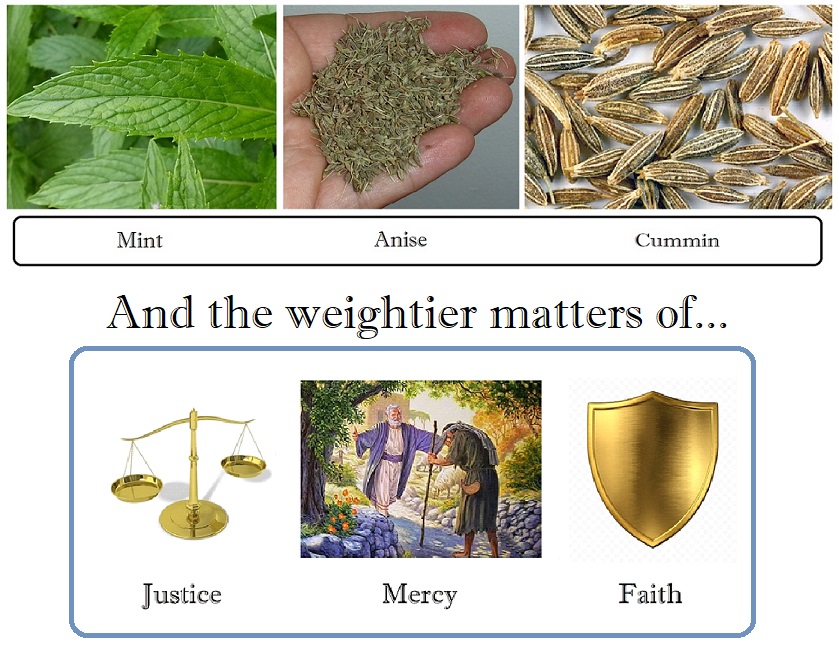“Go therefore and make disciples of all the nations…teaching them to observe all that I commanded you; and lo, I am with you always, even to the end of the age” (Matthew 28:19-20, NASB).
——————–
Contents:
1) This Man You Nailed to a Cross (Chris Simmons)
2) There is no Substitute for God (Jon W. Quinn)
——————–

-1-
This Man You Nailed to a Cross
Chris Simmons
Following Christ’s ascension to the right hand of God’s throne, Peter, having received the Holy Spirit, which Christ had promised His apostles, took his stand with the other eleven and responded to the accusation that they were drunk because they were speaking in tongues. In Acts 2:15, Peter pointed out that devout Jews such as the apostles would not be so intoxicated at the third hour of the day, which is the hour of prayer (9 a.m. as we know it). Then, under the Holy Spirit’s inspiration, Peter established that they were all witnessing the fulfillment of the prophecy spoken by Joel; Peter stated, “This is that which hath been spoken through the prophet Joel” (Acts 2:16-21; Joel 2:28-32). Having defended the twelve and establishing what they were all witnessing, Peter then took the offensive and began to teach and convict the multitude. He began by teaching them about Jesus of Nazareth, convicting them of what they had done to Him, and then in contrast, establishing what God had done for Him.
In Acts 2:22, Peter began by establishing that Jesus’ works proved that He was from God. “Jesus the Nazarene, a man attested to you by God with miracles and wonders and signs.” The word attested, in the Greek, means that Jesus was demonstrated, exhibited, or accredited to be the Divine Son of God.
During His ministry, a multitude came to Jesus and asked, “What then do You do for a sign, that we may see, and believe You? What work do You perform?” (John 6:30). Just prior to that incident, in John 5, in addition to citing the witness of John the Baptist (verse 33), the Father (verse 7) and the Scriptures (verse 39), Jesus also spoke to the witness of His works when He said, “But the witness which I have is greater than that of John; for the works which the Father has given Me to accomplish, the very works that I do, bear witness of Me, that the Father has sent Me” (John 5:36). At least some recognized this about Jesus, as Nicodemus in John 3:2 said, “Rabbi, we know that You have come from God as a teacher; for no one can do these signs that You do unless God is with him.”
Not only did Peter point out Jesus’ works, which attested to His Divine status, but in Acts 2:22, he also pointed out that they were “performed … in your midst, just as you yourselves know.” There was no need for Peter to argue his point regarding the miracles, and wonders, and signs. Jesus had not performed His works in secret. The fact that He performed them was irrefutable. They could not be denied. The only thing His enemies could do was attempt to ascribe them to the power of the “ruler of the demons” (Matthew 12:24). Jesus proved that argument to be fallacious when He stated, “If Satan casts out Satan, he is divided against himself; how then shall his kingdom stand?” (verses 25-29).
Likewise irrefutable were the mighty works performed by Jesus’ apostles. The Jewish council noted this fact when, regarding the healing of the lame man that had taken place in Acts chapter 3, they said, “What shall we do with these men? For the fact that a noteworthy miracle has taken place through them is apparent to all who live in Jerusalem, and we cannot deny it” (Acts 4:16).
Next, in Acts 2, Peter taught that Jesus’ deliverance to “godless men” was not because of Divine inability to rescue Him or establish Him as a physical King; rather, it was part of God’s eternal plan. “This Man (was) delivered up by the predetermined plan and foreknowledge of God” (Acts 2:23). Jesus’ crucifixion was not an accident. It was part of God’s “predetermined plan and foreknowledge.”
- The word “predetermined” means “what is defined, marked out, or bounded; as, to mark out or define the boundary of a field” (Barnes’ Notes, Electronic Database by Bible Soft).
- The word “plan” carries with it the idea of one’s purpose, decree, or will.
Thus, it was God’s will or purpose, “before the foundation of the world” (Ephesians 1:3-12) to mark out or define that man’s salvation would come through Christ’s sacrifice on the cross and the blood He shed. Jesus “laid down His life” (John 10:14-18). Christ’s life was not taken from Him against His will; He offered it according to God’s will.
However, although it was God’s will for Christ to bear the sins of the world, Peter made sure the multitude understood that they were guilty of sin because of what they had done. He stated, in verse 23, regarding this Jesus of Nazareth, “You nailed (Him) to a cross by the hands of godless men and put Him to death.” Peter made it clear that all who participated, as well as those who simply shouted their encouragement and support — “crucify Him” (Mark 15:13-14) — were guilty of murdering God’s Son.
To the Jews, condemning a person to die by nailing him to a cross (crucifixion) was condemning him to die as the worst of criminals. “To the Jewish people, crucifixion represented the most disgusting form of death: ‘He who is hanged is accursed of God’ (Deuteronomy 21:23; Galatians 3:13). Yet, the Jewish Sanhedrin sought and obtained Roman authorization to have Jesus crucified (Mark 15:13-15)” (Nelson’s Illustrated Bible Dictionary).
The fact that the one who claimed to be the “King of the Jews” (Matthew 27:11) was put to death in such a horrible, demeaning way presented to many Jews a most imposing stumbling block to claiming Him as the “Lord and Christ” and accepting Him as the true Messiah. Paul summed up the crucifixion in this way, “We preach Christ crucified, to Jews a stumbling block, and to Gentiles foolishness, but to those who are the called, both Jews and Greeks, Christ the power of God and the wisdom of God” (1 Corinthians 1:23-24).
In Acts 2:24, Peter emphatically established that the efforts of those godless men who nailed Jesus to the cross to thwart God’s predetermined plan failed because God raised Him up. We see the contrast between men’s feeble will (they put Christ to death) and God’s immutable, sovereign, and predetermined will (God raised Him up). Jesus’ resurrection is the foundation for our hope and salvation, and the culminating declaration of His Divinity and victory.
We read in 1 Corinthians 15:14-19, “And if Christ has not been raised, then our preaching is vain, your faith also is vain. Moreover we are even found to be false witnesses of God, because we witnessed against God that He raised Christ, whom He did not raise, if in fact the dead are not raised. For if the dead are not raised, not even Christ has been raised; and if Christ has not been raised, your faith is worthless; you are still in your sins. Then those also who have fallen asleep in Christ have perished. If we have hoped in Christ in this life only, we are of all men most to be pitied.”
Also, in Romans 1:1-5, we read, “Paul, a servant of Jesus Christ, called to be an apostle, set apart for the gospel of God, which He promised beforehand through His prophets in the holy Scriptures, concerning His Son, who was born of a descendant of David according to the flesh, who was declared the Son of God with power by the resurrection from the dead, according to the Spirit of holiness, Jesus Christ our Lord.”
In Acts 2:36, Peter concluded his sermon regarding this Jesus whom they had nailed to a cross, “Therefore let all the house of Israel know for certain that God has made Him both Lord and Christ – this Jesus whom you crucified.” Those Jews then asked, “What shall we do?“ We, too, must give attention to the question, “What shall we do with the crucified Christ?”
— Via Articles from the Knollwood church of Christ, March 2009
——————–
2 Corinthians 5:14-15
“For the love of Christ controls us, having concluded this, that one died for all, therefore all died; and He died for all, so that they who live might no longer live for themselves, but for Him who died and rose again on their behalf.”
— NASB
——————–

-2-
There is no Substitute for God
Jon W. Quinn
As the deer pants for the water brooks, So my soul pants for You, O God. My soul thirsts for God, for the living God; When shall I come and appear before God? (Psalm 42:1-2).
I read the following statement some time ago. I thought about it. “God may well be taken as a substitute for everything; but nothing can be taken as a substitute for God.”
That’s true. It took me a bit to see the truth in it, but finally the light came on.
With God there is always hope for the faithful. There is always prospect and assurance and peace. There is confidence that, at last, all will be well… more than well… perfect. We can suffer the loss of anything, even life itself, and still have this assurance. As long as we have God, then ultimately all will become as it ought to be because God is more powerful than death. That is why nothing can be a substitute for God. Nothing else does that.
But, on the other hand, without God we are destined to lose everything worthwhile and there is no hope of even a glimmer of good. This is why we ought not spend our lives chasing after futile things and neglect God. Nothing can take the place of God. Not really. We can put other things in God’s place, but they will fail to do what God does. Nothing can take His place in our lives.
The Lord told His people, “You must not turn aside, for then you would go after futile things which cannot profit or deliver, because they are futile” (1 Samuel 12:21).
Jesus once asked His apostles if they were giving up and going away. The answer came back, “Lord, to whom shall we go? You have words of eternal life” (John 6:68).
Jesus identifies Himself as “The Bread of Life” because He sustains us through our deepest needs. Just as candy can spoil our appetite and cause us to pass up needed nourishment, the love of things of the world can rob us of our hunger for righteousness and leave us growing ever sicker and ultimately dying a spiritual death. Things of this creation can never do for us what God can do. There is no substitute. People need to stop looking for one.
— Via the Facebook site for the Bradley church of Christ, June 22, 2022
——————–
The Steps That Lead to Eternal Salvation
1) Hear the gospel — for that is how faith comes (Rom. 10:17; John 20:30-31).
2) Believe in the deity of Jesus Christ, the Son of God (John 8:24; John 3:18).
3) Repent of sins. For every accountable person has sinned (Romans 3:23; Romans 3:10), which causes one to be spiritually dead (Ephesians 2:1) and separated from God (Isaiah 59:1-2; Romans 6:23). Therefore, repentance of sin is necessary (Luke 13:5; Acts 17:30). For whether the sin seems great or small, there will still be the same penalty for either (Matt. 12:36-37; 2 Cor. 5:10) — and even for a lie (Rev. 21:8).
4) Confess faith in Christ (Rom. 10:9-10; Acts 8:36-38).
5) Be baptized in water for the remission of sins (Mark 16:16; Acts 2:38; 22:16; 1 Pet. 3:21). This is the final step that puts one into Christ (Gal. 3:26-27). For from that baptism, one is then raised as a new creature (2 Cor. 5:17), having all sins forgiven and beginning a new life as a Christian (Rom. 6:3-4). For the one being baptized does so “through faith in the working of God” (Col. 2:12). In other words, believing that God will keep His word and forgive after one submits to these necessary steps. And now as a Christian, we then need to…
6) Continue in the faith by living for the Lord; for, if not, salvation can be lost (Matt. 24:13; Heb. 10:36-39; Rev. 2:10; 2 Pet. 2:20-22).
——————–
Tebeau Street
CHURCH OF CHRIST
1402 Tebeau Street, Waycross, GA 31501
Sunday: 9 a.m. Bible Classes and 10 a.m. Worship Service. We also have a Song Service at 5 p.m. for every first Sunday of the month.
Wednesday: 7 p.m. for Bible Classes
evangelist/editor: Tom Edwards (912) 281-9917
Tom@ThomasTEdwards.com
https://thomastedwards.com/go/all.htm (This is a link to the older version of the Gospel Observer website, but with bulletins going back to March 4, 1990.)






